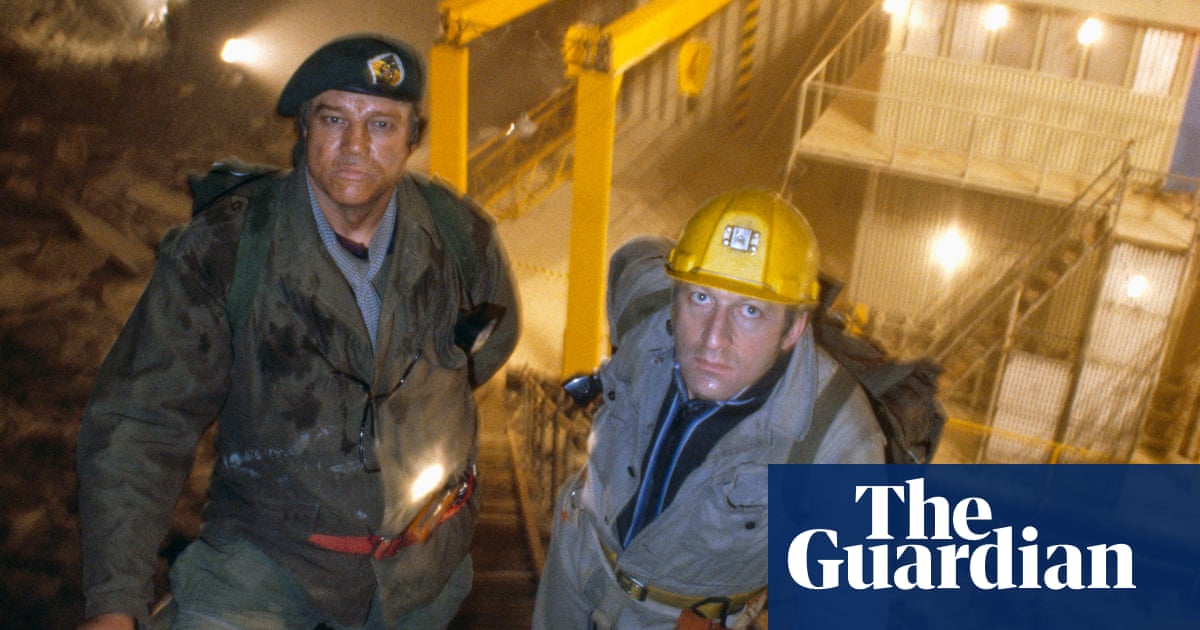Although Joe Don Baker, who has died aged 89, was one of Hollywood’s most accomplished character actors, he came to prominence as a star in the wildly successful B movie Walking Tall (1973). He played Buford Pusser, a former wrestler who returns home to Tennessee and, armed with a baseball bat, battles the Dixie mafia who have taken control of his town. Directed on the cheap by Phil Karlson, the $500,000 film grossed over $40m. “It touched a vigilante nerve in everyone who would like to do in the bad guys but doesn’t have the power,” Baker explained in a 1991 interview.
Tall and powerfully built, Baker had a broad smile and Texas drawl that could convey an aura of menace, but also suggested sharp intelligence, something that served him well in what may have been his best role, as the flamboyant CIA agent Darius Jedburgh in the TV miniseriesEdge of Darkness(1985), for which he was nominated for a Bafta as best actor; he lost to the series’ starBob Peck. “I would have done that all my life … and been happy,” he said. The director, Martin Campbell, agreed, and a decade later cast him in the James Bond movie GoldenEye (1995), where he virtually reprised Jedburgh, as Jack Wade, in brilliant contrast to Pierce Brosnan’s Bond. He was Wade again in Tomorrow Never Dies (1997), and had already played a megalomaniacal Bond villain in The Living Daylights (1987).
Even without Walking Tall, 1973 should have already established Baker’s talents beyond Buford Pusser. That year he also shone in two films that have become neo-noir classics, though they were overshadowed at the time by blockbusters such as The Godfather. Both involved professional thieves who unknowingly steal from banks that are fronts for the mob. In Charley Varrick, Baker played Molly, the hitman sent to get the money back from Walter Matthau’s Varrick. In The Outfit, based on a Richard Stark (Donald Westlake) novel, Baker played Robert Duvall’s partner Cody, who runs a diner between heists, as they seek revenge against Robert Ryan’s mob.
Although he starred in his next film, the forgettable Golden Needles (1974), he was typecast as Pusser-type tough guys in two 1975 movies; Framed, which was Karlson’s final film, andAndrew McLaglen’s one-dimensionally violent Mitchell.
Baker took a long road into acting. He was born in Groesbeck, Texas, near Waco, where his father, Doyle, ran a gas station. His mother, Edna (nee McDonald), died when Joe Don was 12, and he was raised by an aunt. He was captain of the gridiron team in high school, and won a scholarship to North Texas State University in Denton. He graduated with a degree in business administration, but he decided he wanted to become an actor after getting a part in a student play during his senior year.
He served for two years in the army, then headed to New York and joined the Actors Studio, passing his audition because, “I listened … what you’re supposed to do when you act is listen.” He appeared in two notable Broadway productions: Marathon 33, a play written by the actorJune Havocabout Depression-era dance marathons; andJames Baldwin’s Blues For Mr Charlie, which was directed byBurgess Meredith.
Moving to Los Angeles, Baker made his television debut in 1965, in Honey West, which starredAnne Francisas a glamorous detective. He kept busy with westerns such as Gunsmoke and Bonanza, and crime shows, including Judd for the Defense and The Mod Squad. He was uncredited in his first film, Cool Hand Luke (1967), but was notable in Guns of the Magnificent Seven (1969). He played with Telly Savalas and Francis as the title character in the TV movie Mongo’s Back in Town, but finally hit paydirt as Steve McQueen’s brother in Sam Peckinpah’s rodeo drama, Junior Bonner (1972).
Baker moved on to TV roles and smaller films. In 1978 he starred in a TV movie version of Robert Daley’s police novel, To Kill a Cop, which became a series, Eischied (AKA Chief of Detectives). He played a Jimmy Hoffa-like union boss in the 1980 TV movie Power. His cameo as a Babe Ruth figure, the Whammer, being bested by Robert Redford, was a highlight of Barry Levinson’s 1984 baseball film based on Bernard Malamud’s The Natural. The following year, he was a corrupt police chief facing Chevy Chase in Fletch.
While Carroll O’Connor was recovering from illness, he took the starring role in four episodes of the TV series In the Heat of the Night. He was excellent as the private investigator hired by Robert De Niro in Martin Scorsese’s Cape Fear (1991) and played a number of flamboyant public figures in TV films: Senator Joe McCarthy in Citizen Cohn (1992); the celebrity lawyer Gerry Spence in The Siege at Ruby Ridge (1996) and the Alabama governor Big Jim Folsom in the miniseries George Wallace (1997).
He was the farmer holding off aliens with a shotgun in Mars Attacks! (1996) and stole scenes fromJames Caan’s Phillip Marlowe playing his corrupt father-in-law in Poodle Springs (1998). He played the Louisiana congressman Hale Boggs in The Commission (2003), about the dealings of the Warren commission investigating the JFK assassination. His final role came in a neo-noir reminiscent of his two great roles of 1973,Mud(2012), starring Matthew McConaughey.
Baker’s 1969 marriage, to Maria Dolores “Marlo” Rivero-Torres, ended in divorce in 1980.
Joe Don Baker, actor, born 12 February 1936; died 7 May 2025
